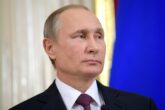June 16, 2022
Strange Debacle: Misadventures In Assessing Russian Military Power
The article was originally published by War on the Rocks.
Russia’s botched invasion of Ukraine has befuddled most defense analysts and Russia experts. They expected Russia’s larger and better-equipped forces would quickly dispatch Ukraine’s military and force its government to surrender. Instead, Ukrainian resilience has bested Russian incompetence, creating an initial Ukrainian upset that has now settled into brutal, attritional combat in the Donbas. After over 100 days of the most intense combat Europe has seen in decades, the outcome remains very much in doubt.
I recently appeared on an episode of the War on the Rocks podcast along with two Russia experts — Michael Kofman and Dara Massicot — and military historian Gian Gentile to discuss how analysts misjudged Russia’s armed forces and their invasion of Ukraine. Several themes emerged from the discussion, including the difficulty of predicting combat performance, the corruption and “gun-decking” (falsification of reports) within the Russian armed forces, and the lunacy of the initial Russian war plan, which didn’t reflect their military strategy, doctrine, exercises, or past operations, or even basic military principles like having a single commander.
Russia’s botched invasion of Ukraine has befuddled most defense analysts and Russia experts.
Others have taken a more critical approach. The historian Philipps Payson O’Brien, for example, wrote an article for The Atlantic early in the war comparing the Western failure to grasp Russian weakness to misguided assessments of French vulnerabilities prior to its defeat by Germany in 1940. He argued that Western analysts overlooked Russian weakness because they fixated on weapons systems and doctrine and ignored key factors like logistics, leadership, and morale. O’Brien is a serious thinker whose arguments merit engagement. He raises important questions about how analysts and policymakers assess military power. Yet he makes key errors and misjudges defense analysis and the Russian military experts.
Read the full article from War on the Rocks.
More from CNAS
-
Trump ‘Humiliated’ as Putin Sends Clear Message That He Doesn’t Care About US
"Putin is not playing ball." Putin's Palm Sunday attack on Sumy is "embarrassing for the White House" as it comes just days after Steve Witkoff met with the Kremlin, says adju...
By Jim Townsend
-
The Hidden Past and Uncertain Future of the U.S. and Ukraine with Celeste Wallander
Under the Trump administration, U.S. support for Ukraine is no longer guaranteed. President Trump's pause on aid and intelligence to Ukraine in March may have been brief, but ...
By Andrea Kendall-Taylor, Jim Townsend & Celeste Wallander
-
Is Russia Under Pressure?
Since 2014, the United States and its allies have provided increasing military support to Ukraine while imposing more and tougher economic sanctions on Russia, especially sinc...
By Jeffrey Edmonds
-
Sharper: Russia and the Axis of Upheaval
Russia’s 2022 invasion of Ukraine served as a dramatic catalyst for strengthening the global axis of upheaval. To sustain its war effort, Russia has imported Iranian weapons a...
By Charles Horn




